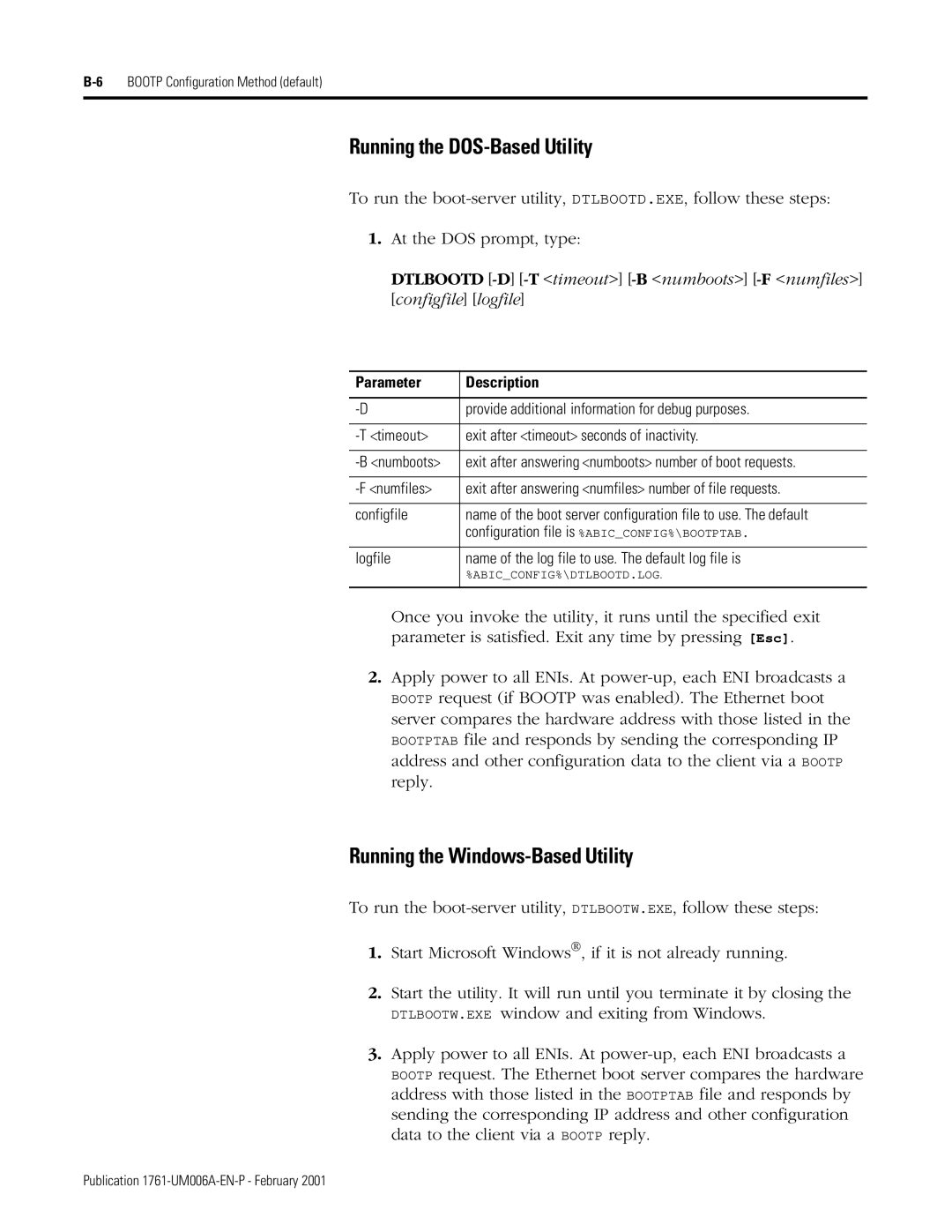Running the DOS-Based Utility
To run the
1.At the DOS prompt, type:
DTLBOOTD
Parameter | Description |
|
|
provide additional information for debug purposes. | |
|
|
exit after <timeout> seconds of inactivity. | |
|
|
exit after answering <numboots> number of boot requests. | |
|
|
exit after answering <numfiles> number of file requests. | |
|
|
configfile | name of the boot server configuration file to use. The default |
| configuration file is %ABIC_CONFIG%\BOOTPTAB. |
|
|
logfile | name of the log file to use. The default log file is |
| %ABIC_CONFIG%\DTLBOOTD.LOG. |
|
|
Once you invoke the utility, it runs until the specified exit parameter is satisfied. Exit any time by pressing [Esc].
2.Apply power to all ENIs. At
Running the Windows-Based Utility
To run the
1.Start Microsoft Windows®, if it is not already running.
2.Start the utility. It will run until you terminate it by closing the DTLBOOTW.EXE window and exiting from Windows.
3.Apply power to all ENIs. At
